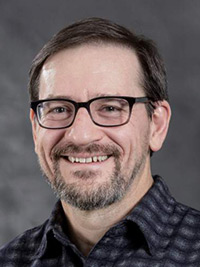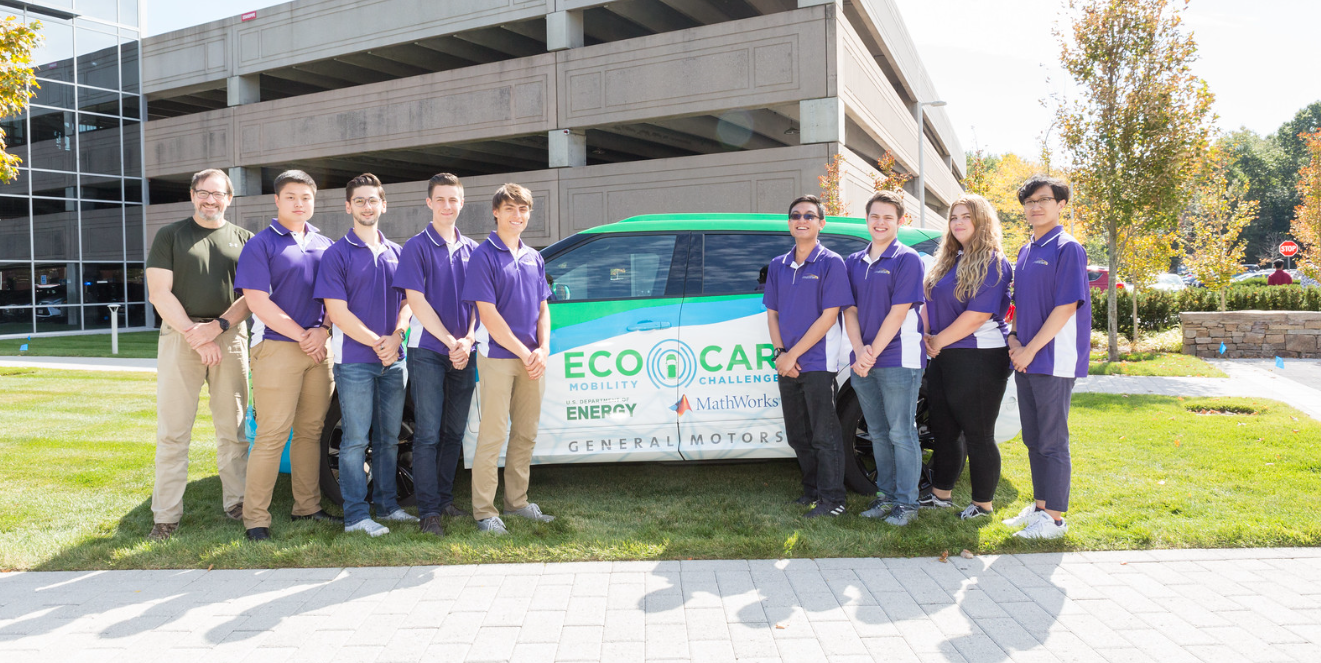
UW ECE Professor Bruce Darling, who took over as lead faculty adviser for the UW Advanced Vehicle Technology Competition (AVTC) team in 2019.
For almost a century, automotive engineering has fallen squarely within the purview of the mechanical engineering field. However, today’s automotive industry has evolved with the increasing need for top talent from a wide range of engineering disciplines including electrical, computer science and software engineering to develop advanced propulsion systems, electrification, autonomous technologies, vehicle connectivity and more.
This is just one of the reasons why it made perfect sense for University of Washington Electrical & Computer Engineering (UW ECE) Professor Bruce Darling to take over as lead faculty adviser for the UW Advanced Vehicle Technology Competition (AVTC) team in 2019. Having been involved with previous competitions, Darling jumped at the chance to lead the team competing in The EcoCAR Mobility Challenge.
“Mobility, and transportation engineering in general, is one of the most pressing needs of our time. It plays a large role in the impact of our species on the planet, and it is a fundamental aspect of our lives that enables social connection, essential services, recreation and commerce,” said Darling. “Vehicle electrification is one of those, along with the increased automation and connectivity that is essential for creating new systems for getting people where they want to go. The key factor here are systems and the need to tie it all together.”
It’s no secret that participating in EcoCAR is a demanding undertaking for students, teams and faculty. It takes a multi-disciplinary team of talent with a wide array of engineering expertise to even compete. Students are tasked with completely re-engineering a vehicle to exacting standards in terms of handling, acceleration and fuel economy. It must be fully street legal and compliant with all government safety requirements and be able to withstand the many driving conditions a normal consumer would encounter.
“It is such a pleasure to be immersed in a group of students who are destined to have a real impact on the world.” -Bruce Darling
“Our car has more computing power under the hood than most workstations, and that software must be extremely reliable and run without any interruptions since it controls many of the advanced driver-assist functions like advanced cruise control, lane-keeping and early collision warnings,” he said. “Those systems are not like video games or toys or cell phone apps; they must work infallibly with 100 percent uptime because they are part of the life-safety envelope the vehicle provides and for which the driver and passengers count on.”
In fact, many past UW grads who participated in EcoCAR have gone on to work at top software and IT companies. According to Darling, “EcoCAR alumni are some of the most sought-after graduates because they can come up to speed on new projects of this scale within only a few months, whereas new graduates without this experience might typically require several years. It makes a huge difference in one’s initial employment prospects, and once on the job, that experience accelerates one’s career by several years.”

Darling with the EcoCAR Mobility Challenge team
Darling’s varied background, from working with start-ups to forensic engineering for NASA in the wake of the Columbia disaster, provides his students the benefit of working with someone who is keenly aware of how and why complicated systems fail and how to engineer systems able to withstand failures when they do happen. He also serves on the competitions Faculty Advisory Board, a position selected by his peers, to help organizers develop the appropriate challenges for students.
“These days I spend about 10 percent of my time worrying about how everything should work right and about 90 percent of the time worrying about what happens when things go wrong and how to design systems to gracefully handle those failures,” said Darling.
So, with two and a half years into this four-year competition, what impresses him most about his team?
“Without a doubt, it has been working with a team of student volunteers who put enormous time and dedication into the project. These are not the type who put in only the minimum effort to get by, they are the ones who are making every effort to maximize their education and achieve the most possible,” said Darling. “That’s an attitude which cultivates success, and it is such a pleasure to be immersed in a group of students who are destined to have a real impact on the world.”
To learn more about Professor Darling and EcoCAR, visit: EcoCAR Mobility Challenge

